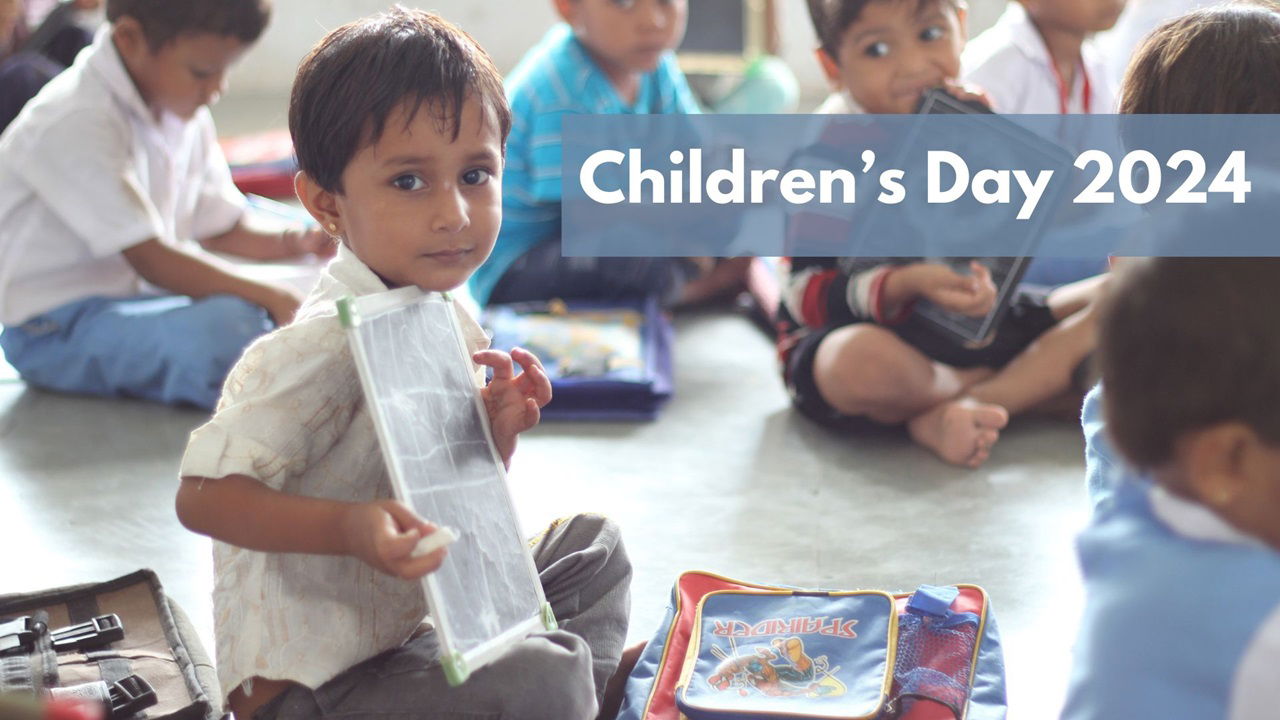
Children’s Day or Bal Diwas, celebrated annually in India on November 14, is a day of joy, reflection, and dedication to the rights and wellbeing of children. Commemorated on the birth anniversary of India’s first Prime Minister, Pandit Jawaharlal Nehru, this day celebrates childhood as a unique and precious period in every person's life. It’s a moment to honour children and recognize their role in shaping the future while also remembering the contributions of Nehru, an enduring advocate for children and their education.
History of Children’s Day
Before 1964, India observed Children’s Day on November 20, aligning with the United Nations’ Universal Children's Day. However, after Jawaharlal Nehru’s death in 1964, his birth anniversary on November 14 was chosen to honour him for his enduring affection for children. Often called "Chacha Nehru", his legacy of cherishing and supporting children's welfare and education led to this change. Celebrating Children’s Day on Nehru’s birthday is now a longstanding tradition, carrying forward his message that children are the “real strength of a nation and the foundation of society.”
Significance of Children’s Day
The significance of Children’s Day goes beyond mere celebration; it’s a call to action for society to focus on children’s welfare, education, and rights. This day reminds us of the necessity to ensure children have safe, nurturing environments where they can learn, grow, and thrive. India has made significant progress in areas like primary education and healthcare for children, but challenges like child labor, malnutrition, and limited access to quality education still exist. Children’s Day, therefore, is an opportunity to raise awareness, advocate for children’s rights, and re-dedicate efforts toward their welfare.
For children, the day is often marked by joy and celebration. Schools and educational institutions organize events such as competitions, cultural performances, and sports activities. Teachers and parents take part in making the day memorable, reminding children of their importance and potential. This celebration also emphasizes that every child deserves love, care, and a supportive environment to reach their full potential.
Interesting Facts About Jawaharlal Nehru
Jawaharlal Nehru, one of the architects of modern India, was deeply passionate about children’s rights and education. Here are some fascinating aspects of Nehru’s life and his contributions:
-
Educational Visionary: Nehru strongly believed that a progressive society must invest in its youth. His vision for India’s future included establishing a strong educational foundation, leading to the creation of institutions such as the Indian Institutes of Technology (IITs) and the Indian Institutes of Management (IIMs), which continue to be prestigious centers for learning.
-
Fondly Known as “Chacha Nehru”: Children lovingly called him “Chacha Nehru” because of his warm, affectionate personality. He would often spend time with children, making them feel special and encouraging their curiosity and enthusiasm for learning.
-
Advocate for Science and Technology: Nehru’s commitment to scientific advancement helped shape India's progress post-independence. He believed that scientific progress would contribute to India’s development and envisioned a country where children had access to quality education to contribute to these fields.
-
Vision for Peace and Unity: Nehru’s dreams for India were filled with hopes for a united and harmonious society. He felt that children, with their natural innocence and acceptance of diversity, symbolized peace and unity.
-
Literary Contributions: Nehru was also an author, and his books, such as Letters from a Father to His Daughter and The Discovery of India, reflect his depth of knowledge and values.
Children’s Day serves as a reminder that children are a nation’s most valuable assets. Nurturing their talents, dreams, and well-being is a responsibility shared by all members of society. As Nehru said, “The children of today will make the India of tomorrow. The way we bring them up will determine the future of the country.” In 2024, let us honor this sentiment by creating a world where every child can dream, learn, and grow in an environment filled with love, respect, and support.
















